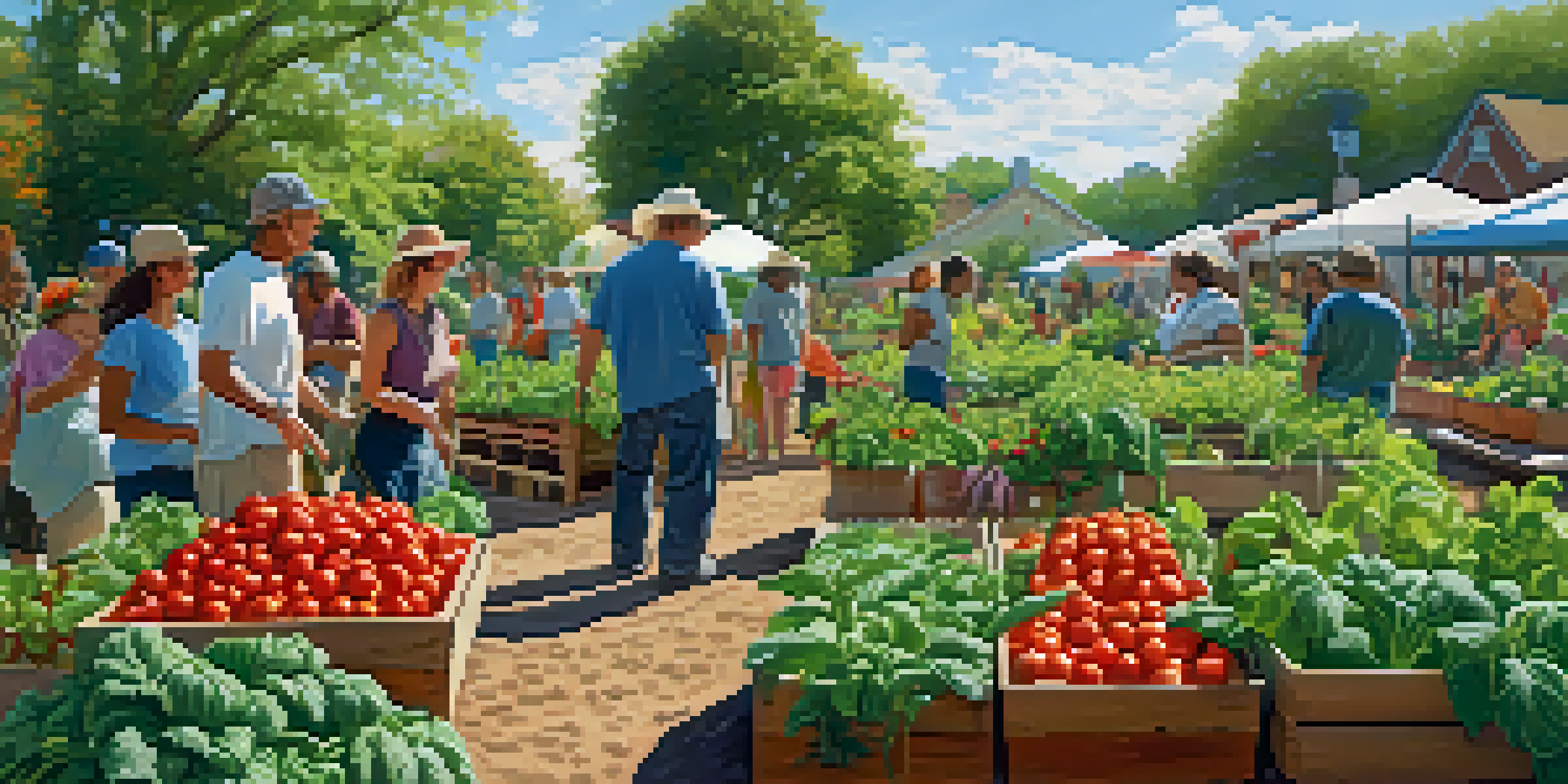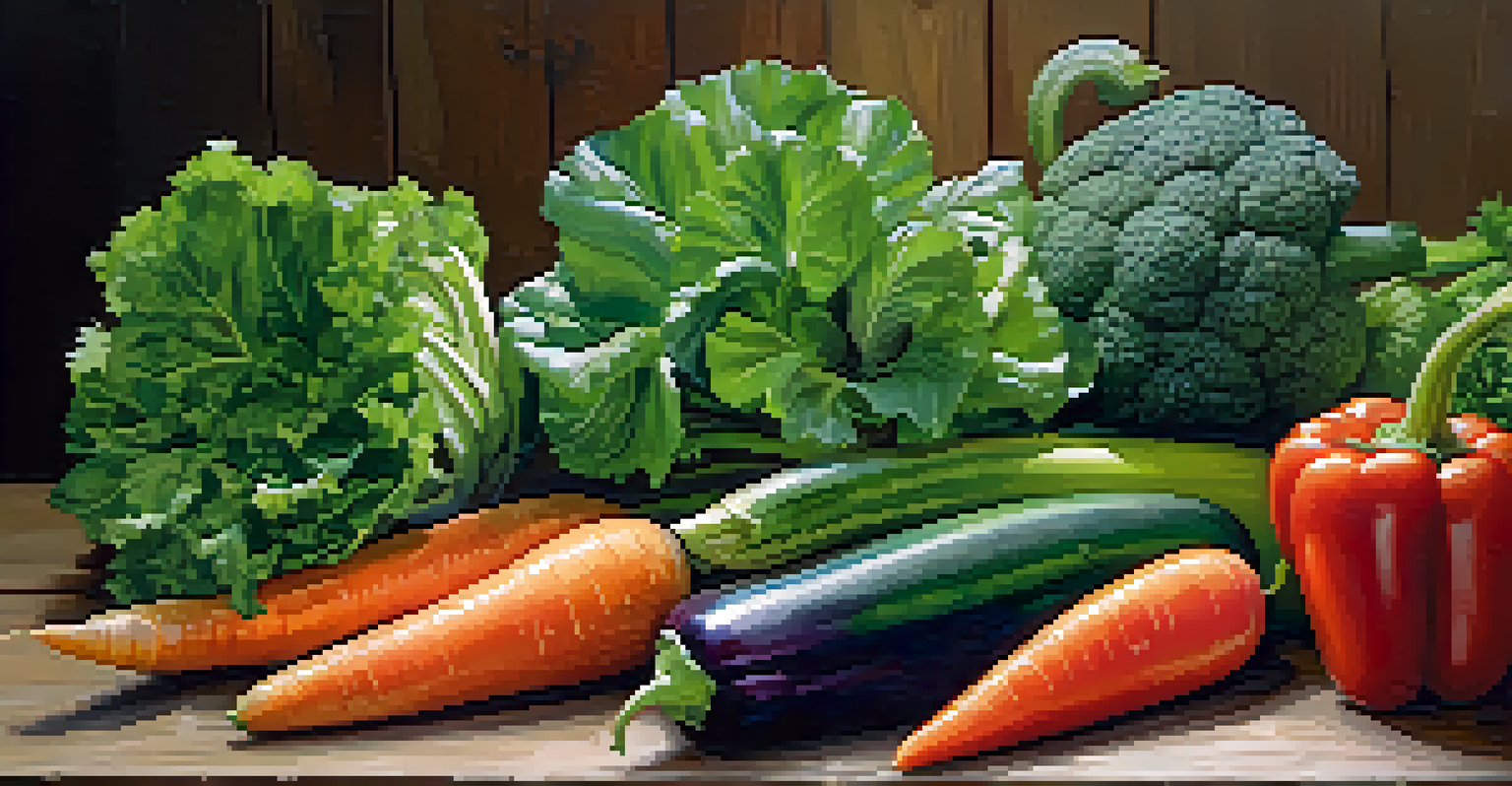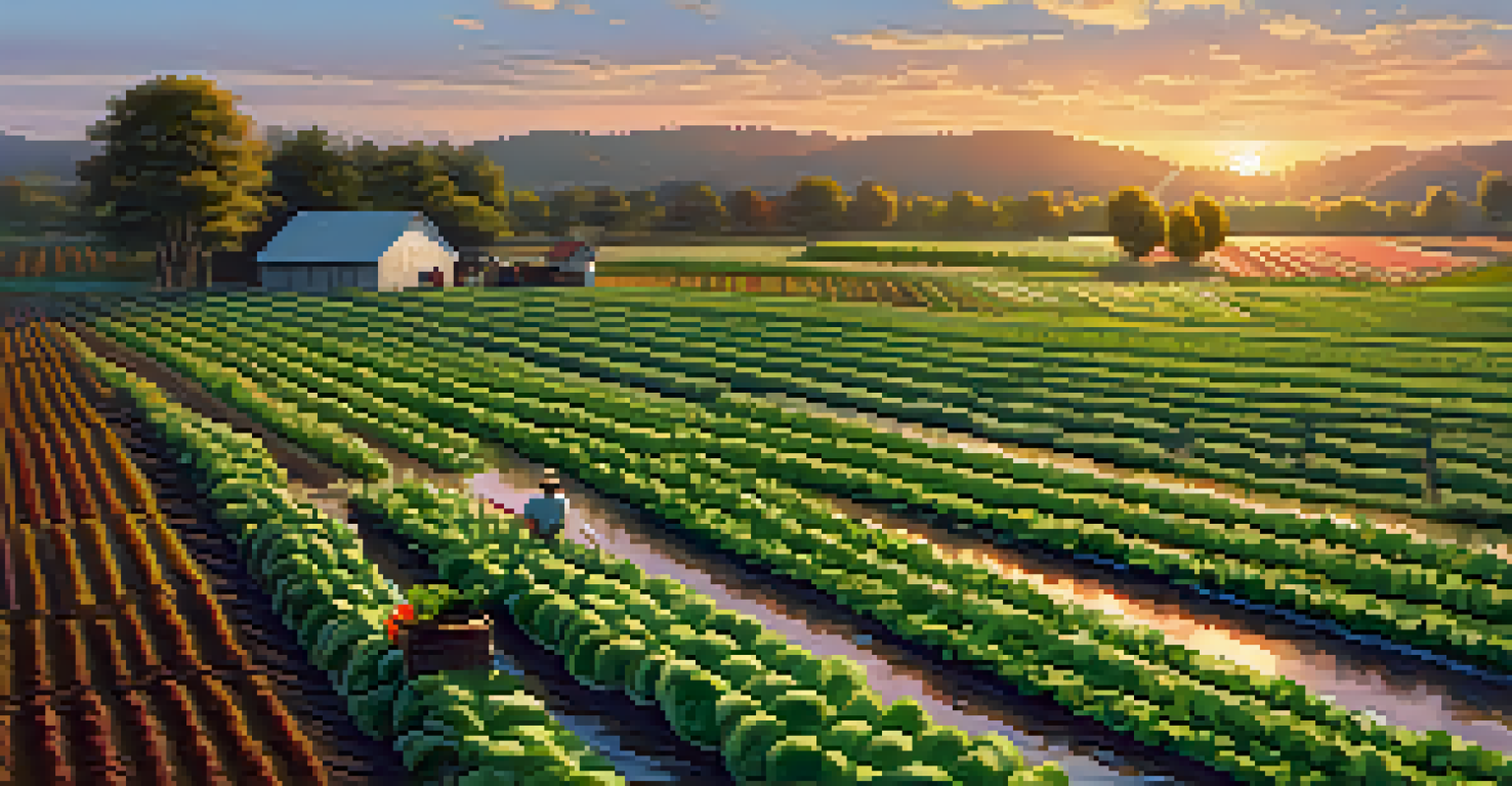The Role of Vegetables in Reducing Resource Depletion

Understanding Resource Depletion and Its Impact
Resource depletion refers to the consumption of natural resources faster than they can be replenished. This phenomenon affects everything from water supplies to fossil fuels, impacting the environment and human health. As our population grows, the demand for these resources only intensifies, necessitating a rethink of our consumption habits.
The greatest threat to our planet is the belief that someone else will save it.
One major contributor to this issue is the agricultural sector, which often relies on resource-intensive practices. For instance, traditional farming may lead to soil degradation and excessive water use, exacerbating depletion. Understanding the intricate relationship between our food choices and resource depletion is crucial for sustainable living.
Fortunately, vegetables offer a promising solution. By focusing on plant-based diets, we can alleviate some of the pressure on our precious resources. This shift not only helps in conserving water and soil but also plays a vital role in reducing greenhouse gas emissions.
The Environmental Benefits of Growing Vegetables
Growing vegetables can significantly lower our carbon footprint. Unlike meat production, which often involves extensive land and resource use, vegetable farming typically requires fewer resources. For example, the water footprint of vegetables is generally much smaller compared to that of livestock, highlighting their efficiency.

Moreover, vegetable gardens can promote biodiversity. By cultivating a variety of plants, we create habitats for pollinators and other beneficial organisms. This diversity helps maintain healthy ecosystems, which are essential for sustaining our natural resources.
Plant-Based Diets Reduce Resource Use
Shifting to a plant-based diet significantly lowers the demand for water and land resources compared to meat consumption.
In addition, local vegetable gardens reduce the need for transportation, cutting down on fossil fuel consumption. When we grow our food nearby, we not only save on emissions but also contribute to the local economy, making this a win-win situation for both the environment and our communities.
The Role of Sustainable Farming Practices
Sustainable farming practices are vital in enhancing the role of vegetables in resource conservation. Techniques such as crop rotation, intercropping, and organic farming can improve soil health and reduce reliance on chemical fertilizers. These methods not only help preserve resources but also yield nutritious vegetables that benefit our health.
We do not inherit the earth from our ancestors, we borrow it from our children.
Additionally, sustainable practices can significantly reduce water usage. Innovations like drip irrigation allow farmers to apply water directly to the roots of plants, minimizing waste. This efficiency is crucial in regions facing water scarcity, demonstrating how mindful farming can combat resource depletion.
By embracing sustainable farming, we can create a more resilient food system. This approach not only safeguards our resources but also ensures that future generations can enjoy the benefits of fresh, healthy vegetables.
Plant-Based Diets: A Path to Resource Conservation
Adopting a plant-based diet is one of the most effective ways individuals can contribute to reducing resource depletion. By choosing vegetables over meat, we significantly lower our demand for water and land resources. For instance, producing one kilogram of beef requires around 15,000 liters of water, while growing a kilogram of vegetables uses only a fraction of that.
This dietary shift can also lead to better health outcomes. Studies show that plant-based diets are linked to lower risks of chronic diseases, ultimately benefiting both personal health and the environment. When we prioritize vegetables, we not only nourish ourselves but also help preserve the planet.
Community Gardening Strengthens Bonds
Community gardens not only provide fresh produce but also foster a sense of community and promote sustainable practices.
Furthermore, raising awareness about the benefits of plant-based diets can inspire others to make similar choices. As more people realize the impact of their food choices, we can collectively work towards a more sustainable future, reducing the strain on our valuable resources.
Community Gardening: Building Sustainable Habits
Community gardening is an excellent way to promote the importance of vegetables in resource conservation. These gardens provide fresh produce while fostering a sense of community and shared responsibility. When people come together to grow food, they learn about sustainable practices and the value of local resources.
In addition, community gardens can enhance food security, especially in urban areas where access to fresh produce may be limited. By growing vegetables locally, communities can reduce their reliance on industrial agriculture, which often comes with high environmental costs. This localized approach not only supports healthier eating but also strengthens community bonds.
Moreover, community gardens can serve as educational platforms. Workshops and events can teach people about sustainable gardening techniques, the benefits of a plant-based diet, and the importance of conserving resources. Through these initiatives, we can empower individuals to make informed choices that positively impact the environment.
The Economic Advantages of Vegetable Consumption
Choosing vegetables over resource-intensive foods can lead to significant economic savings. By investing in a plant-based diet, individuals can cut grocery bills while still enjoying a variety of delicious meals. This financial incentive can motivate more people to incorporate vegetables into their daily lives.
Additionally, supporting local vegetable farms stimulates the economy. When consumers prioritize local produce, they contribute to the livelihood of farmers who practice sustainable methods. This not only strengthens local food systems but also promotes environmentally friendly practices that help conserve resources.
Sustainable Farming Preserves Resources
Embracing sustainable farming techniques enhances soil health and reduces resource depletion while yielding nutritious vegetables.
Lastly, reducing resource depletion through vegetable consumption can lead to long-term economic benefits. As we shift towards more sustainable practices, we mitigate the risks associated with resource scarcity, ensuring a stable and prosperous future for everyone.
Conclusion: Embracing Vegetables for a Sustainable Future
In conclusion, the role of vegetables in reducing resource depletion cannot be overstated. By understanding the impact of our food choices and embracing sustainable practices, we can make a difference. Vegetables not only provide essential nutrients but also offer a path towards conserving our planet's precious resources.
As individuals, we have the power to influence change through our dietary habits. Choosing vegetables over resource-intensive options is a simple yet effective way to contribute to a healthier planet. By engaging in community gardening and supporting local farmers, we can amplify this impact.

Ultimately, it's about creating a ripple effect. When we prioritize vegetables, we inspire others to do the same, paving the way for a more sustainable future. Let’s embrace the humble vegetable as not just food, but as a key player in our quest to protect our natural resources.